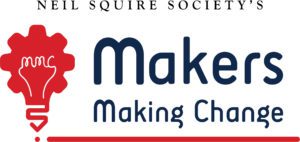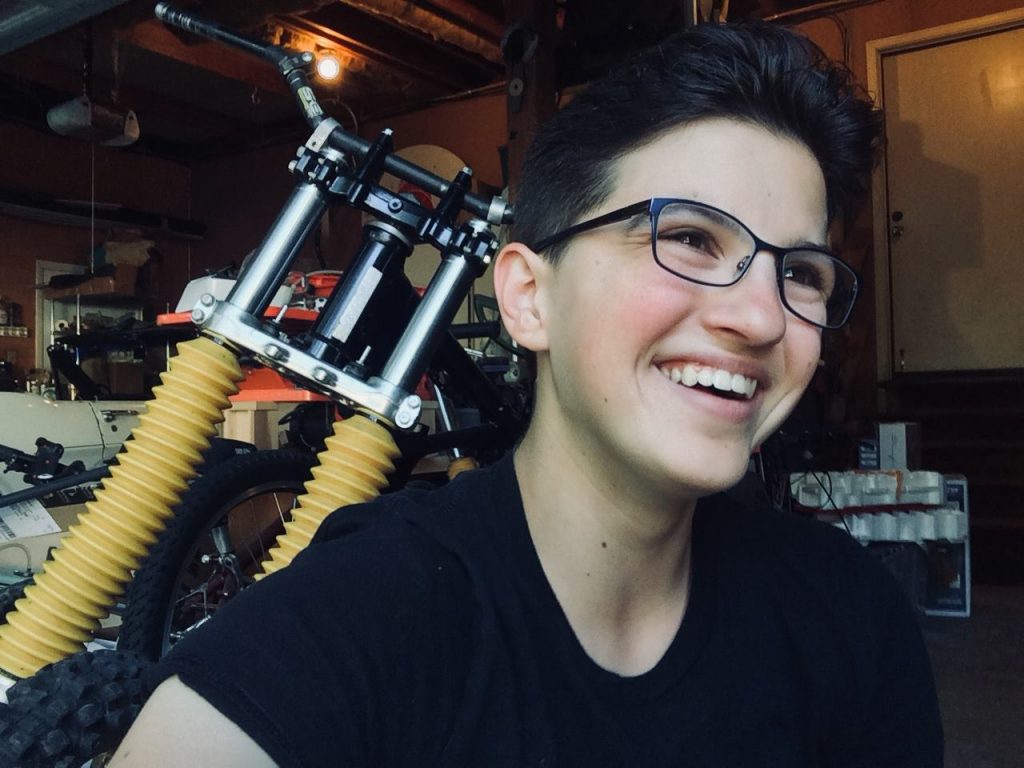Did you see the ad for Microsoft’s adapted Xbox controller during this year’s Super Bowl? You know the one, “When everybody plays, we all win” (cue happy tears). The ad shows kids with disabilities gaming with their friends. The controller, paired with switches, makes gaming accessible regardless of each child’s unique physical challenges. Owen, for example, uses two foot switches plugged into the device to play.
That Microsoft designed and marketed a device so gamers with disabilities can compete at high levels of competitive play is a happy surprise. Happier yet is the affordability of the controller – a reasonable $99.99. But what if you need five or six switches to make the controller work for you? An Ablenet Microlight Switch, for example, is $85. This is a popular switch; it’s small, easy to tape or velcro to a surface, and requires only a light touch to activate. If a gamer needs five microlights to make the controller work for him, does he also have $425 to get them?
Enter Makers Making Change, a program of the Neil Squire Society based in Burnaby, BC. Makers Making Change (MMC) is on a mission to ensure assistive technology (AT) is accessible and affordable. MMC is a North American network that pairs volunteer makers who have technical skills (or want to develop them) with people with disabilities who need affordable, customized AT.
 A person with a disability can use the MMC platform to put in a request. He will then be matched to a volunteer. The volunteer either creates a design or accesses MMC’s library of 3D models, builds the requested item, and charges only the cost of materials. That $85 switch? An MMC volunteer maker can build that switch in about 20 minutes for $8. “You’re not getting the 100% beautiful aesthetic,” says Research and Development Manager Harry Lew. “But you are getting 100% of the functionality of the switch.”
A person with a disability can use the MMC platform to put in a request. He will then be matched to a volunteer. The volunteer either creates a design or accesses MMC’s library of 3D models, builds the requested item, and charges only the cost of materials. That $85 switch? An MMC volunteer maker can build that switch in about 20 minutes for $8. “You’re not getting the 100% beautiful aesthetic,” says Research and Development Manager Harry Lew. “But you are getting 100% of the functionality of the switch.”
“Technology is outrageously expensive,” Lew explains. “It is not affordable for everyone. Makers Making Change was an evolution of (the Neil Squire Society’s) mission to make AT accessible, supported by the desire of your average person to make things again and the inexpensive access to devices that can make things.”
Devices commonly used by volunteer makers include 3D printers, 3D modeling software like Fusion 360, soldering irons, and basic electrical tools. These devices and tools are available on college campuses and in schools, public libraries, and other shared maker spaces across the country. An article in Popular Science noted that in 2016, there were at least 400 active maker spaces in the U.S. and approximately 1,400 globally.
Those numbers don’t take into account the countless makers who have their own 3D printers at home. “The first industrial 3D printer cost $200,000, and only industrial printers were available,” Lew says. Once the patent expired, printers became affordable for individuals. With easy access to this technology, skills that were formerly the realm of engineers are being taught to high school students. “You can get laser cutters for $500-600 versus $20,000 for the same system not long ago,” Lew explains. “Now people have these in their garages and are wondering what they’re going to do with them. At Makers Making Change, we’re trying to create a new delivery model for people through volunteers.”
MMC volunteer Eleni Comstock, an MSU engineering student, is interested in utilizing her skills while forging relationships. “What drew me to Makers Making Change are the connections it can foster between people with disabilities and the maker community,” she shares. “Having the ability to connect with another human while discussing the creation of a piece of assistive technology for a fraction of the cost of retail is amazing. I believe this project can have massive social as well as physical impact on various diverse groups of humans.”
Comstock is hoping to build an MMC network in Montana for makers and people with AT needs. She is currently working to connect maker spaces with disability communities, and hopes to inspire interest in build nights on the MSU campus. “I am really stoked to get this project off the ground,” she says.
Makers make it possible not only to afford AT, but to customize it quickly. Lew shared one example: a three-finger-hole key turner can make it easier for a person with arthritis to turn a key. In about five minutes, an experienced maker can size that key turner to fit a small child’s hand, or make it a four-finger-hole turner. Such changes can be made cheaply and delivered quickly.
The flagship project of Makers Making Change was the LipSync. LipSync is a joystick operated by the mouth to access a computer, tablet, or mobile device. Working with a spinal cord injury facility in San Jose, MMC is able to build 20 LipSyncs for the same cost of buying three on the market. “It’s a game changer,” Lew says. “Especially since a lot of these patients were going to go home without assistive technology otherwise.”
[If you are interested in being a game-changing volunteer maker, or would like to submit a request to be paired with a maker, visit the MMC website. People with disabilities, potential makers at all skill levels, AT specialists, and therapists who work with people with disabilities should check it out! If you are interested in Eleni’s networking effort and future builds in Bozeman, you can contact her at ecomstock.789@gmail.com . The Xbox adapted controller and a broad range of switches can be borrowed from MonTECH for 30 days at a time.]

